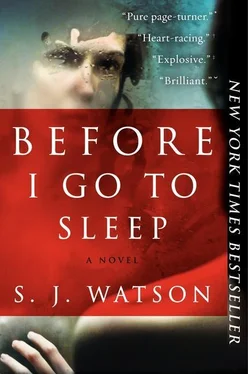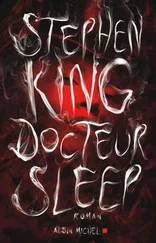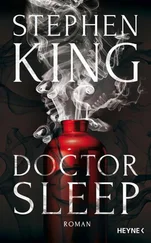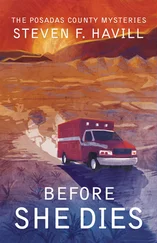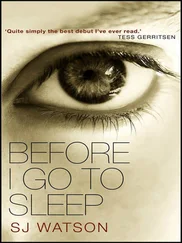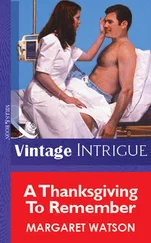No wonder Ben might want to hide it from me. I picture him now, removing all the copies, burning them in the metal barbecue on the back porch, before deciding what to tell me. How best to reinvent my past to make it tolerable. What I needed to believe for the remainder of my years.
But that is over now. I know the truth. My own truth, one I have not been told but have remembered. And it is written now, etched in this journal rather than my memory, but permanent nevertheless.
I know that the book I am writing—my second, I realize with pride—may be dangerous, as well as necessary. It is not fiction. It may reveal things best left undiscovered. Secrets that ought not to see the light of day.
But still my pen moves across the page.
This morning, I asked Ben if he’d ever grown a mustache. I was still feeling confused, unsure of what was true and what was not. I had woken early and, unlike previous days, had not thought that I was still a child. I had felt adult. Sexual. The question in my mind was not Why am I in bed with a man? but, instead, Who is he? and What did we do? In the bathroom, I looked at my reflection with horror, but the pictures around it seemed to resonate with truth. I saw the man’s name—Ben—and it was familiar somehow. My age, my marriage, these facts seemed to be things I was being reminded of, not told about for the first time. Buried, but not deeply.
Dr. Nash called me almost as soon as Ben left for work. He reminded me about my journal and then—once he had told me that he would be picking me up later to take me for my scan—I read it. There were a few things in it I could perhaps recall, and maybe whole passages I could remember writing. It was as if some residue of memory had survived the night.
Perhaps that was why I had to be sure the things contained within it were true. I called Ben.
“Ben,” I said, once he’d told me he wasn’t busy. “Did you ever have a mustache?”
“That’s an odd question!” he said. I heard the clink of a spoon against a cup and pictured him spooning sugar into his coffee, a newspaper spread in front of him. I felt awkward. Unsure how much to say.
“I just—” I began. “I had a memory. I think.”
Silence. “A memory?”
“Yes,” I said. “I think so.” My mind flashed on the things I had written about the other day—his mustache, his naked body, his erection—and those I had remembered yesterday. The two of us in bed. Kissing. Briefly, they were illuminated, before sinking back into the depths. Suddenly I felt afraid. “I just seem to remember you with a mustache.”
He laughed, and I heard him put down his drink. I felt solid ground begin to slip away. Maybe everything I had written was a lie. I am a novelist, after all, I thought. Or I used to be.
The futility of my logic hit me. I used to write fiction, therefore my assertion that I had been a novelist might be one of those fictions. In which case, I had not written fiction. My head spun.
It had felt true, though. I told myself that. Plus I could touch-type. Or I had written that I could, at least…
“Did you?” I asked, desperate. “It’s just… it’s important…”
“Let’s think,” he said. I imagined him closing his eyes, biting his bottom lip in a parody of concentration. “I suppose I might have done, once,” he said. “Very briefly. It was years ago. I forget…” A pause, then, “Yes. Actually, yes. I think I probably did. For a week or so. A long time ago.”
“Thank you,” I said, relieved. The ground on which I stood felt a little more secure.
“You okay?” he asked, and I said that I was.
Dr. Nash picked me up at midday. He’d told me to have some lunch first, but I wasn’t hungry. Nervous, I suppose. “We’re meeting a colleague of mine,” he said in the car. “Dr. Paxton.” I said nothing. “He’s an expert in the field of functional imaging of patients with problems like yours. We’ve been working together.”
“Okay,” I said, and now we sat in his car, stationary in stuck traffic. “Did I call you yesterday?” I asked. He said that I had.
“You read your journal?”
“Most of it. I skipped bits. It’s already quite long.”
He seemed interested. “What sections did you skip?”
I thought for a moment. “There are parts that seem familiar to me. I suppose they feel as if they’re just reminding me of things I already know. Already remember…”
“That’s good.” He glanced at me. “Very good.”
I felt a glow of pleasure. “So what did I call about? Yesterday?”
“You wanted to know if you’d really written a novel,” he said.
“And had I?” I said. “Have I?”
He turned back to me. He was smiling. “Yes,” he said. “Yes, you have.”
The traffic moved again and we pulled away. I felt relief. I knew what I had written was true. I relaxed into the journey.
Dr. Paxton was older than I expected. He was wearing a tweed jacket, and white hair sprouted unchecked from his ears and nose. He looked as though he ought to have retired.
“Welcome to the Vincent Hall Imaging Center,” he said once Dr. Nash had introduced us, and then, without taking his eyes off mine, he winked and shook my hand. “Don’t worry,” he added. “It’s not as grand as it sounds. Here, come in. Let me show you around.”
We made our way into the building. “We’re attached to both the hospital and the university, here,” he said as we went through the main entrance. “Which can be both a blessing and a curse.” I did not know what he meant and waited for him to elaborate, but he said nothing. I smiled.
“Really?” I said. He was trying to help me. I wanted to be polite.
“Everyone wants us to do everything.” He laughed. “No one wants to pay us for any of it.”
We walked into a waiting room. It was dotted with empty chairs, copies of the same magazines Ben had left for me at home— Radio Times , Hello! , now joined by Country Life and Marie Claire —and discarded plastic cups. It looked like there had recently been a party that everyone had left in a hurry. Dr. Paxton paused at another door. “Would you like to see the control room?”
“Yes,” I said. “Please.”
“Functional MRI is a fairly new technique,” he said, once we’d gone in. “Have you heard of MRI? Magnetic resonance imaging?”
We were standing in a small room, lit only by the ghostly glow from a bank of computer monitors. One wall was taken up by a window, beyond which was another room, dominated by a large cylindrical machine, a bed protruding from it like a tongue. I began to feel afraid. I knew nothing of this machine. Without memory, how could I?
“No,” I said.
He smiled. “I’m sorry. MRI is a fairly standard procedure. It’s a little like taking an X ray through the body. Here we’re using some of the same techniques but actually looking at how the brain works. At function.”
Dr. Nash spoke then—the first time in a while he had done so—and his voice sounded small, almost timid. I wondered whether he was in awe of Dr. Paxton, even desperate to impress him.
“If someone has a brain tumor, then we need to scan their head to find out where the tumor is, what part of the brain is affected. That’s looking at structure. What functional MRI allows us to see is which part of the brain you use when you do certain tasks. We want to see how your brain processes memory.”
“Which parts light up, as it were,” said Paxton. “Where the juices are flowing.”
“That will help?” I asked.
“We hope it will help us to identify where the damage is,” said Dr. Nash. “What’s gone wrong. What’s not working properly.”
Читать дальше
